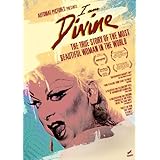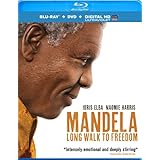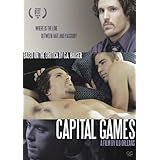
Fans of wonderfully wry political farce owe BFS Entertainment great thanks for the four-disc DVD set of the 1990 British mini-series "The Gravy Train" and the 1991 sequel "The Gravy Train Goes East."
"Train" stars Austrian actor Christoph Waltz, who won Oscars for his roles in "Django Unchained" and "Inglourious Basterds," as simultaneously naive, idealistic, and arrogant German policy wonk Hans Joachim Dorfmann. Dorfmann is fresh off a mission introducing the works of 19th century German philosopher Friedrich Nietzsche to the Third World when he begins working for the Brussels-based commission that administers the programs of the European Economic Community, which is the predecessor of the European Union.
Watching the almost perpetual pipe-smoking Dorfmann be the dupe of the manipulations of his colleagues and others who take advantage of him while simultaneously treating him with open contempt provokes strong senses of Peter Sellers' brilliant portrayal of Inspector Clouseau in the original "Pink Panther" films and the characters that Woody Allen plays so well in Allen's early films. Dorfmann having exotic female protectors in both series adds to the vibe described above.
Legendary stage and screen actor Ian Richardson, who is a founder of the Royal Shakespeare Company, plays Dorfmann's superior Michael Spearpoint. Spearpoint is a perfect stereotype of a veteran bureaucrat in that his personal ambitions are his paramount concern, his discretion regarding an extra-marital affair is limited, and he has no qualms about berating Dorfmann or setting him up to fail. This character is reminiscent of Richardson's role in the 1990 version of "House of Cards."
A scene in "East" in which Spearpoint describes receiving a knighthood as the honor that England bestows on someone who is no longer useful is typical of the wonderful humor of both "Train" series. It is also amusing when considering the real-life honors bestowed on Richardson.
Another great moment involves commenting that a description of a colleague that he likes expensive food and fast women should be that he likes fast food and expensive women.
Much of the action regarding the first series relates to Spearpoint assigning Dorfmann to find a proper use for a trainload of rotting surplus plums. This theoretically supports the strong desire of Dorfmann to send the excess food of Europe to the Third World; the practical aspect of transporting the plums would result in providing those needy folks sustenance that would create severe gastric distress.
A subplot has Dorfmann's radical German girlfriend with an unconventional sense of what constitutes intimate activity going completely off-the-rails on visiting her sweetie in Brussels.
The plum assignment leads to Dorfmann becoming involved with a shady commodities broker, who arranges to send the fruit to Bulgaria. As soon becomes hilariously obvious, Dorfmann is the only one playing a role in this venture who has a altruistic purpose regarding it. The profit motives of virtually everyone else are a significant reason for the double-meaning title of this uber-awesome program.
"The Gravy Train Goes East" continues the fun of the original; the events in this one occur two years after the incidents of the original and revolves around the quest of fictional Balkans nation Slaka to join the European Community and receive a related large economic development grant. The fact that the female dime-store novelist who takes power in the wake of a very rapid coup openly refers to Dorfmann as "Prince Stupid" provides a good sense of the attitude of that nation regarding the man who is sent to evaluate its suitability for membership in the Community.
Much of the humor in this one relates to stereotypes associated with small nations in the same region as Slaka. They are referred to a nation of buggers, not regarding their sexual habits but because electronic listening devices are liberally installed in any place in which there might be a conversation worth such a device. Other running jokes relate to the numerous times that other nations have occupied Slaka, very obvious spies, and a current high-ranking official maintaining his elite status through renouncing the overthrown government in which he also was a leader.
The following clip, courtesy of YouTube, from "East" provides a good sense of the hilarious cliches described above.
Spearppoint is involved in "East" as a representative of the British government, which has a comical reason for resisting the campaign for Slaka to join the community; of course, that policy is subject to change provided the proper improper motive.
Scenes in which Spearpoint finds himself staying in unsuitable lodgings in Slaka and is saddled with the stuttering and generally inept representative of Her Majesty in that backwater nation provide some hilarious moments.
The mishaps that Dorfmann encounters during his fact-finding missions include multiple kidnappings, coerced promises for ridiculously expedited entry into the Community, and a race for absconded funds. In other words, just another day at the office for our new favorite bureaucrat.
The final debriefing regarding both "Trains" is that an exceptional cast, hilarious dialog and situations, and the aura of truth regarding both stories make for seven hours of exceptional entertainment and hopes for a belated end to what can be a terrific trilogy.
Anyone with questions or comments regarding "Train" is encouraged to email me; you can also connect on Twitter via @tvdvdguy.
















